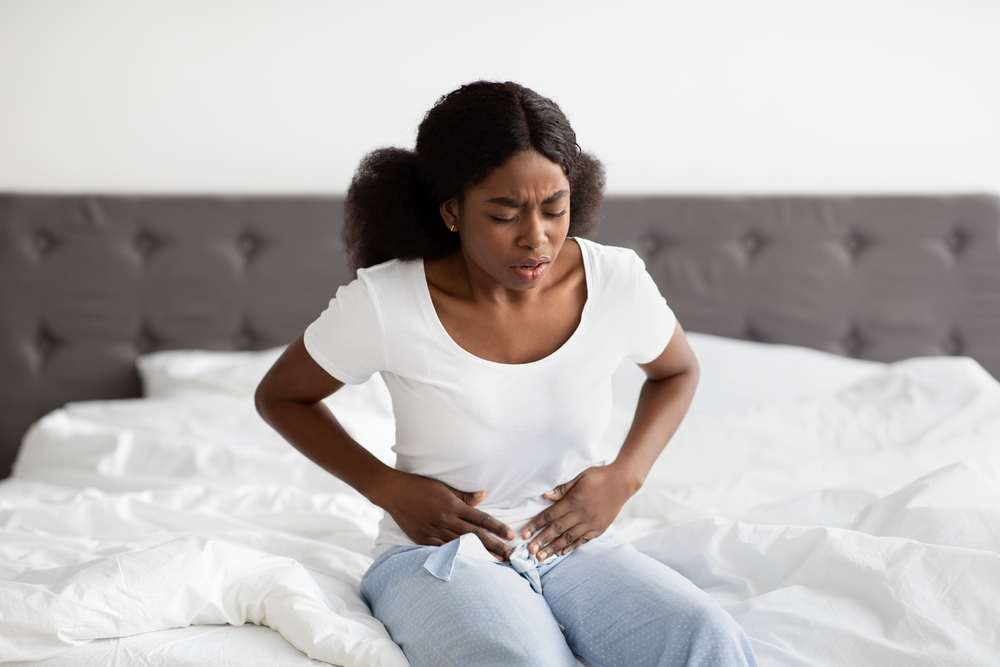News release
From:
Research at a Glance:
- More than 3000 young Australians are being recruited for a project that aims to improve the care and management of endometriosis and period and pelvic pain
- The first of its kind project will explore early risk factors, mental health, educational and management strategies that impact on health care and long-term outcomes. The aim is to ensure that young people in the future will not have to suffer with period and pelvic pain and to avoid the long-term consequences of endometriosis including infertility
- The project, recruiting via social media and 20 hospitals nationally, is seeking those aged between 10-18 years, who experience period or pelvic pain and endometriosis and have been referred to a gynecologist
More than 3000 young Australians are being recruited for a project that aims to improve the care and management of endometriosis and period and pelvic pain.
Researchers at the Murdoch Children’s Research Institute (MCRI) will lead the project, which will explore early risk factors and psychosocial factors impacting on hospital visits, to better understand the educational and management strategies required to help ensure that young people’s lives are not ruined by period and pelvic pain.
Professor Sonia Grover will oversee the LongSTEPPP Project being launched today on International Women’s Day. The project, recruiting via social media and 20 hospitals nationally, is seeking those aged between 10-18 years, who experience period or pelvic pain and endometriosis and have been referred to a gynecologist.
The research builds on preliminary findings that show the care of young people by adolescent gynecologists results in lower surgical intervention rates, achieves good control of symptoms and has positive long-term outcomes with lower than expected infertility and endometriosis rates when followed up 10 years later.
Professor Grover said the project was the first of its kind due to its focus on young people, leading to the possibility of prevention of endometriosis-related problems through early control of menstrual issues and pelvic pain.
“There is limited education to ensure young people seek help for their period problems,” she said. “Young people report that their symptoms are ignored or normalised, and many will experience years of pain before it’s acknowledged and their pain treated. Evidence suggests that recurrent severe period pain predisposes people to chronic pelvic pain.
“Despite this, the impact of education and psychosocial factors on the development of persistence of pain in young people to adulthood has not been studied.”
Endometriosis is a condition where tissue that normally lines the uterus is found outside the uterus. It affects about one in every 10 Australians who menstruate and is associated with infertility and chronic pelvic pain. There are no symptoms that are specific to endometriosis and at least half of those who have a laparoscopy for pain will have no signs of the condition found.
“Most young people who have periods will experience some pain,” Professor Grover said. “For others, the pain and associated symptoms they experience will stop them from doing everyday activities and will affect their quality of life and mental health. No young person should have to go through life experiencing severe period pain.
“We believe that period and pelvic pain can be managed to prevent chronic pain and endometriosis. We want to measure and track periods, pain, quality of life and mental health in young people affected by period or pelvic pain and endometriosis. We want to know what works to help their pain by tracking their health care over time –with this project running for five years.”
For Ruby her life largely became a blur as she was heavily medicated to dull her chronic period pain, which could last for up to three weeks every month.
“My period wasn’t a normal one, from day one it was a killer period,” she said. One day I woke up in the worst pain that I think I have ever felt. I didn’t know what to do with myself or how to get even the smallest bit of respite. I fell in a heap on the floor and slept for two hours. This wasn’t a one-off really bad day. This was the amount of pain that I was in for the larger part of four years. Most teenagers never left the house without their phone, I never left the house without my painkillers.
“Pain that hurt to lay still in my bed and left me lying on the floor of whatever room I happened to find myself. I couldn’t participate in sport or go to parties because I couldn’t bear the thought of standing that long. I missed a lot of school, couldn’t sit exams or complete homework.”
But after reaching out to Professor Grover and going on a three year journey of trying to treat the pain, Ruby was eventually prescribed medications that worked for her, which meant her life of debilitating agony was over.
“The treatment has been life changing. I’m not in pain anymore and I can commit to going to parties, rowing sessions and attending class,” she said.
Ruby, 16, said she was excited to take part in the MCRI led project because these conditions have been overlooked for too long.
“A period should be an inconvenience at worse,” she said. Without a focus on this research area I possibly wouldn’t have found the right treatment and would still be missing 50 per cent of school every year.”
Participants will be asked to complete up to eight questionnaires in the first year and between six to seven questionnaires yearly for up to five years. The parent/carer of the young person will also be asked to complete three questionnaires yearly.
For more on Ruby’s story visit the MCRI blog page.
To find out more about the project visit www.mcri.edu.au/research/projects/longsteppp or email longsteppp@mcri.edu.au
To register your interest visit https://redcap.link/longsteppp_welcome
Available for interview:
Professor Sonia Grover, paediatric and adolescent gynaecologist
Emma Simpfendorfer and her daughter Ruby, 16, who had experienced chronic period pain



 Australia; VIC
Australia; VIC


